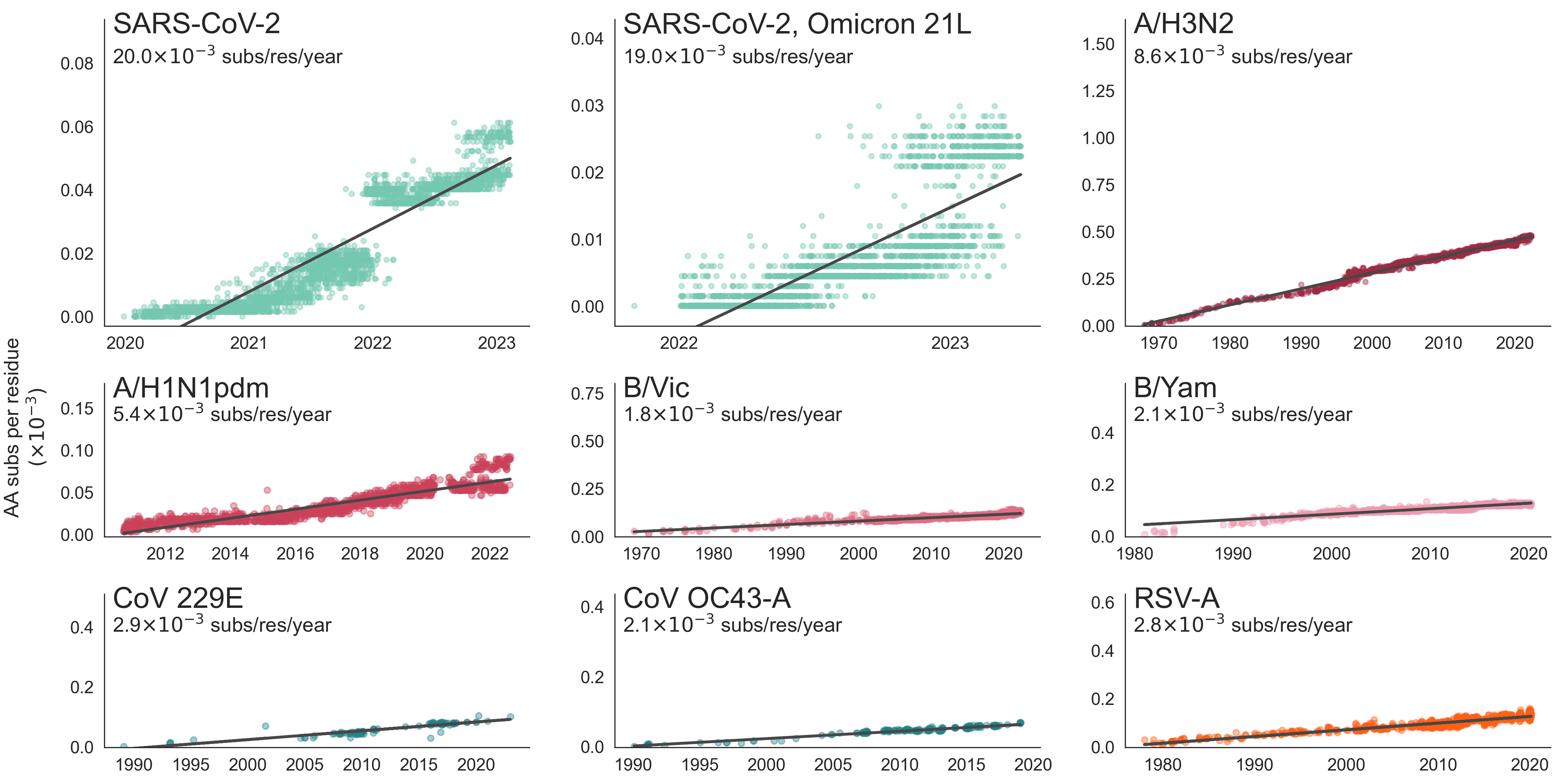Pathogen diversity
A pathogen is a disease-causing biological entity capable of replication within a host and transmission between hosts
Broad categories
- RNA viruses
- DNA viruses
- Bacteria
- Parasites and fungi
Mutation rate varies with genome size
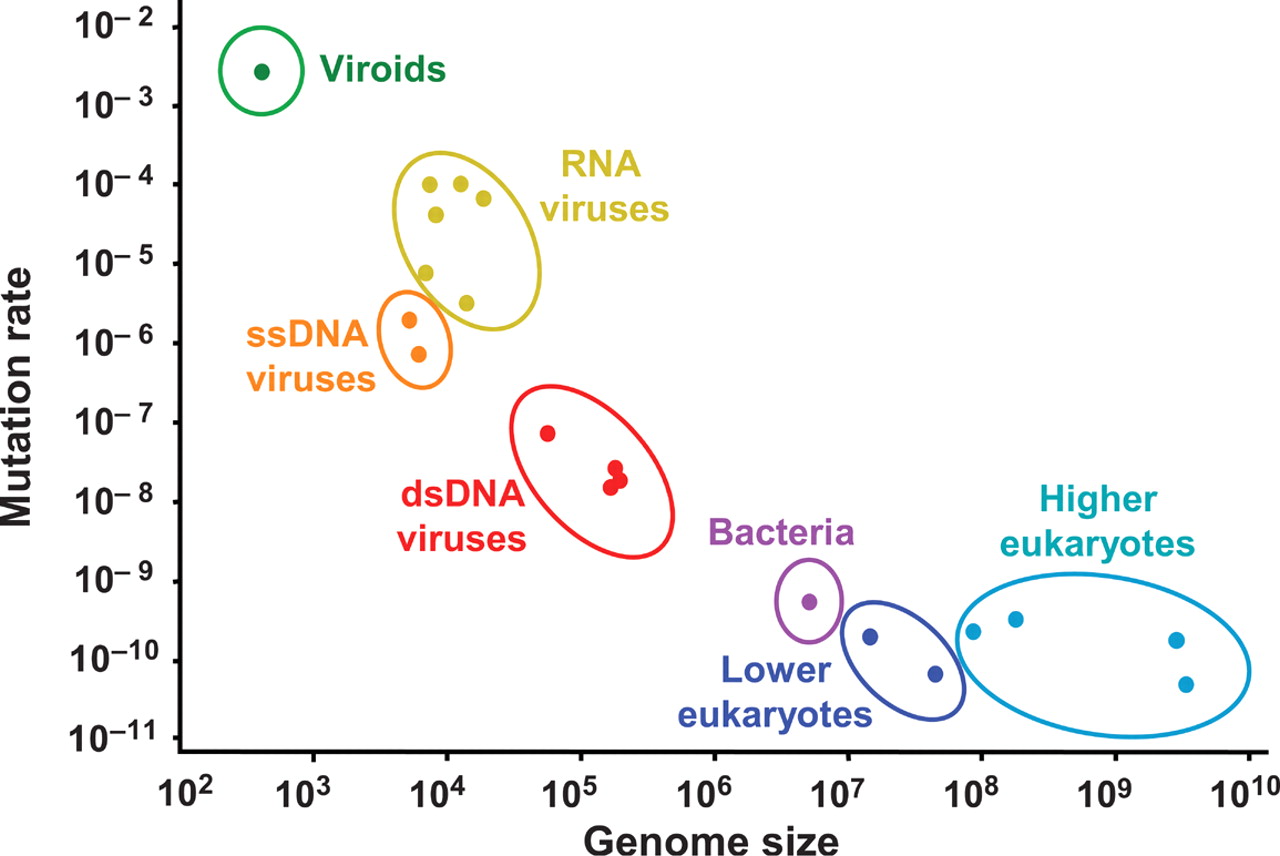
Viroids are parasitic functionless RNA
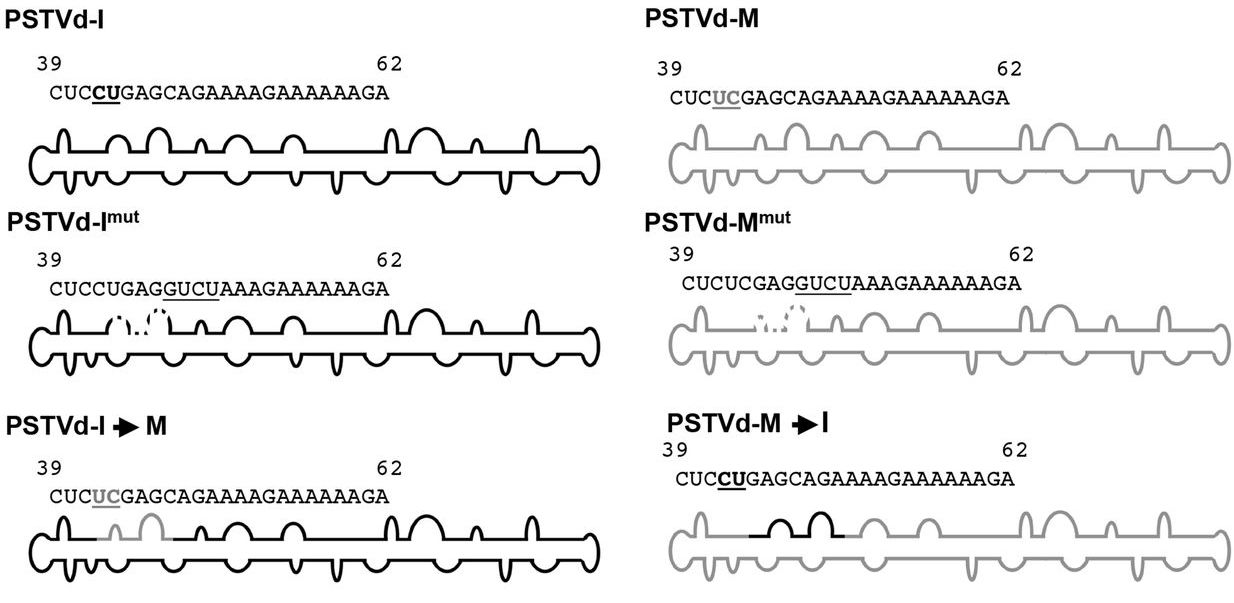
Baltimore classification system describes virus groups
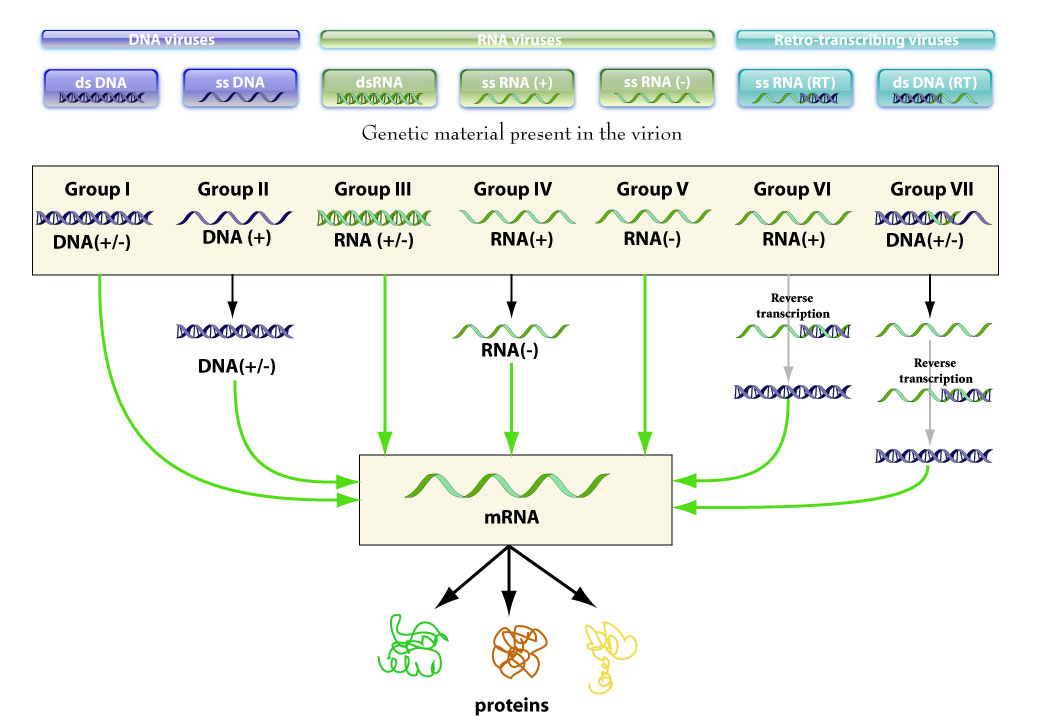
RNA virus lifecycle, internal vs surface proteins
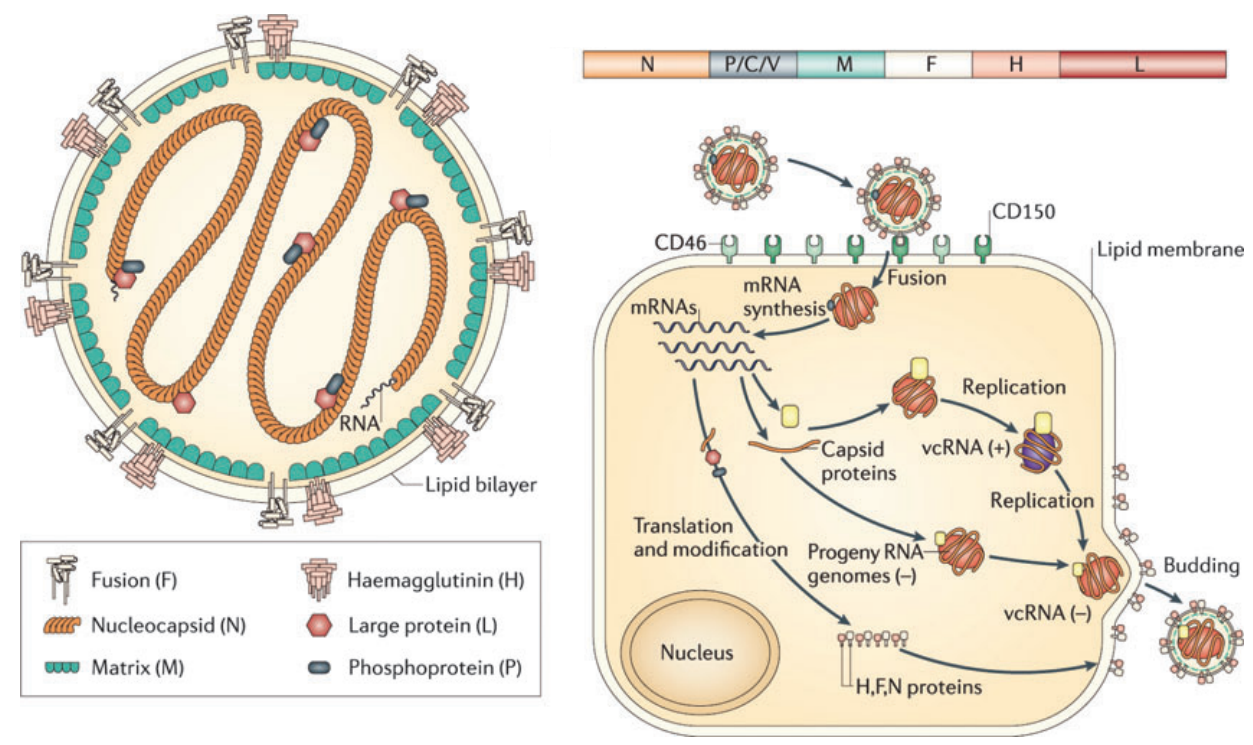
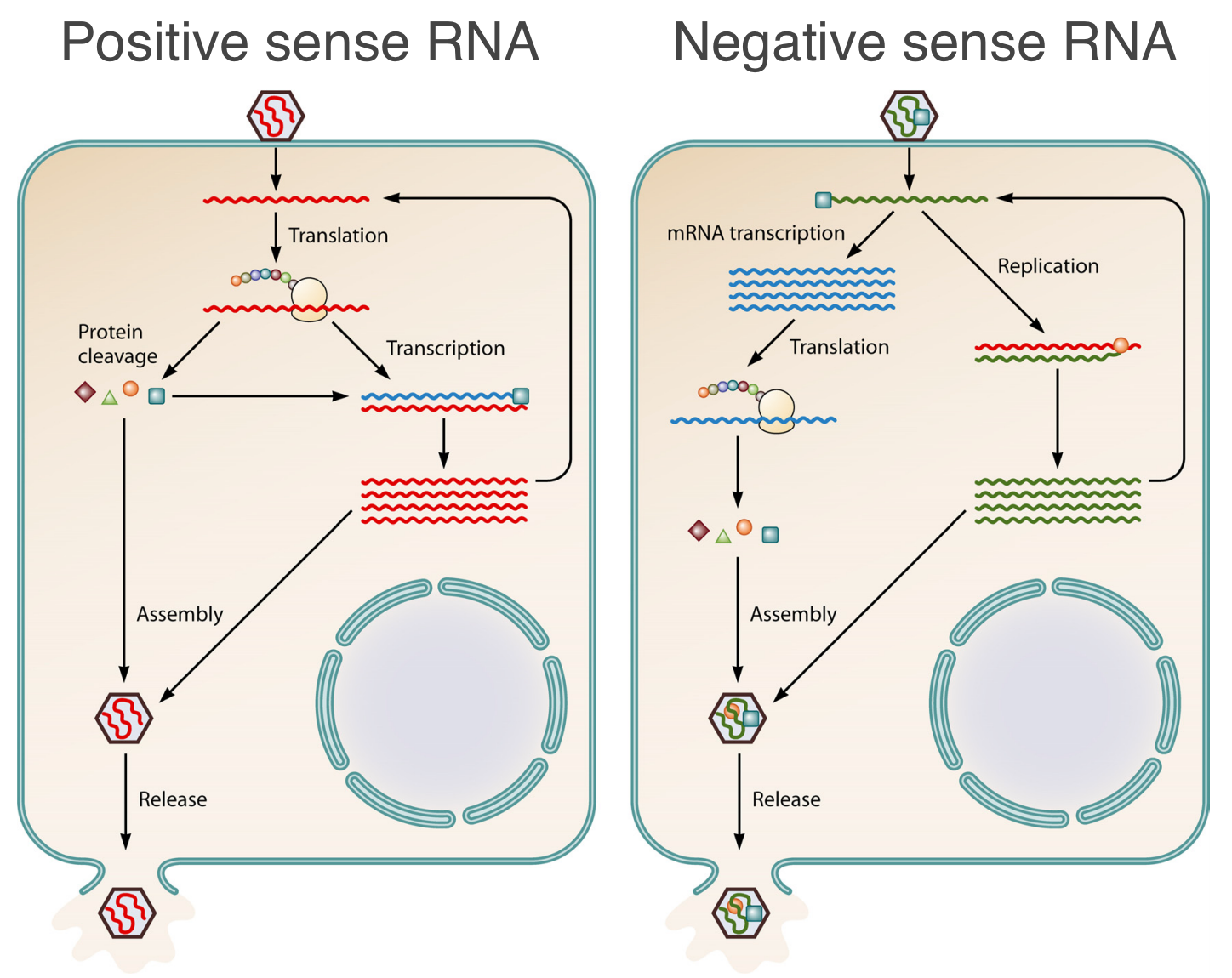
Negative-sense RNA virus phylogeny
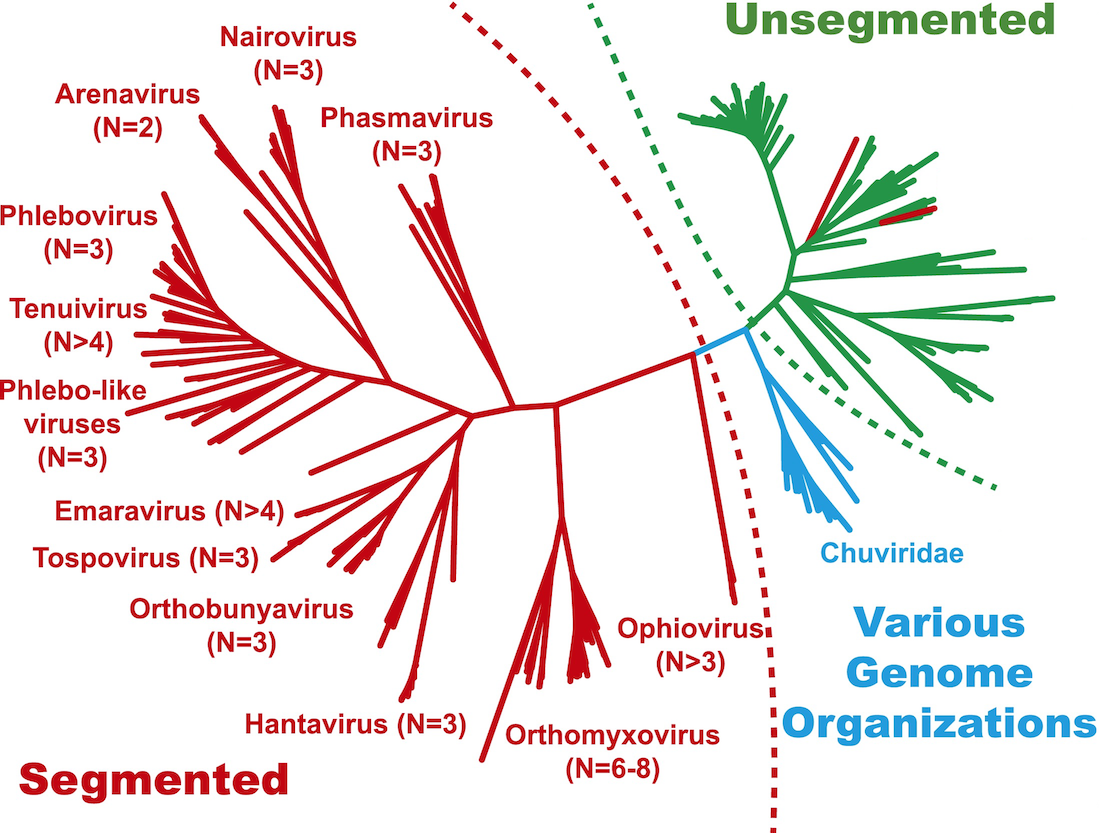
Negative-sense RNA virus phylogeny
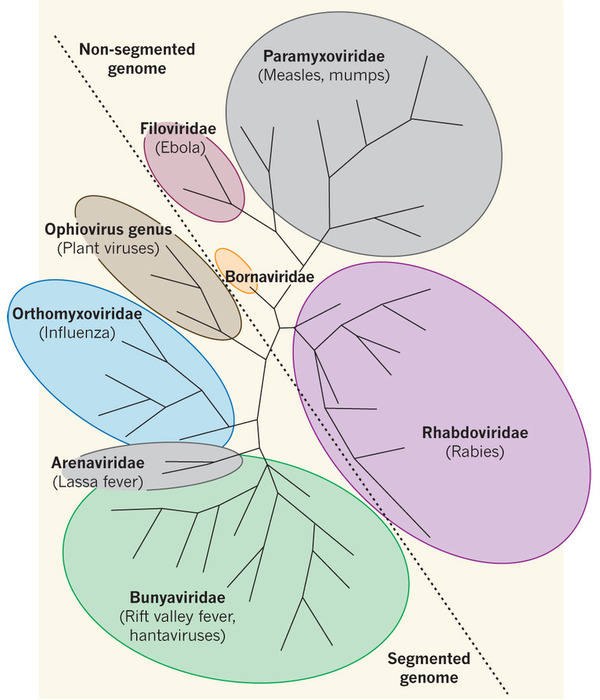
Negative-sense RNA viruses
- Influenza
- Measles
- Ebola
- Rabies
- Lassa
- Hanta
- Respiratory syncytial virus (RSV)
Positive-sense RNA viruses
- Flaviviruses: Yellow fever, West Nile, Dengue, Zika, HCV
- Coronaviruses, including SARS-CoV-2
- Rhinovirus
- Polio
- Norovirus
- Chikungunya
Retrovirus lifecycle
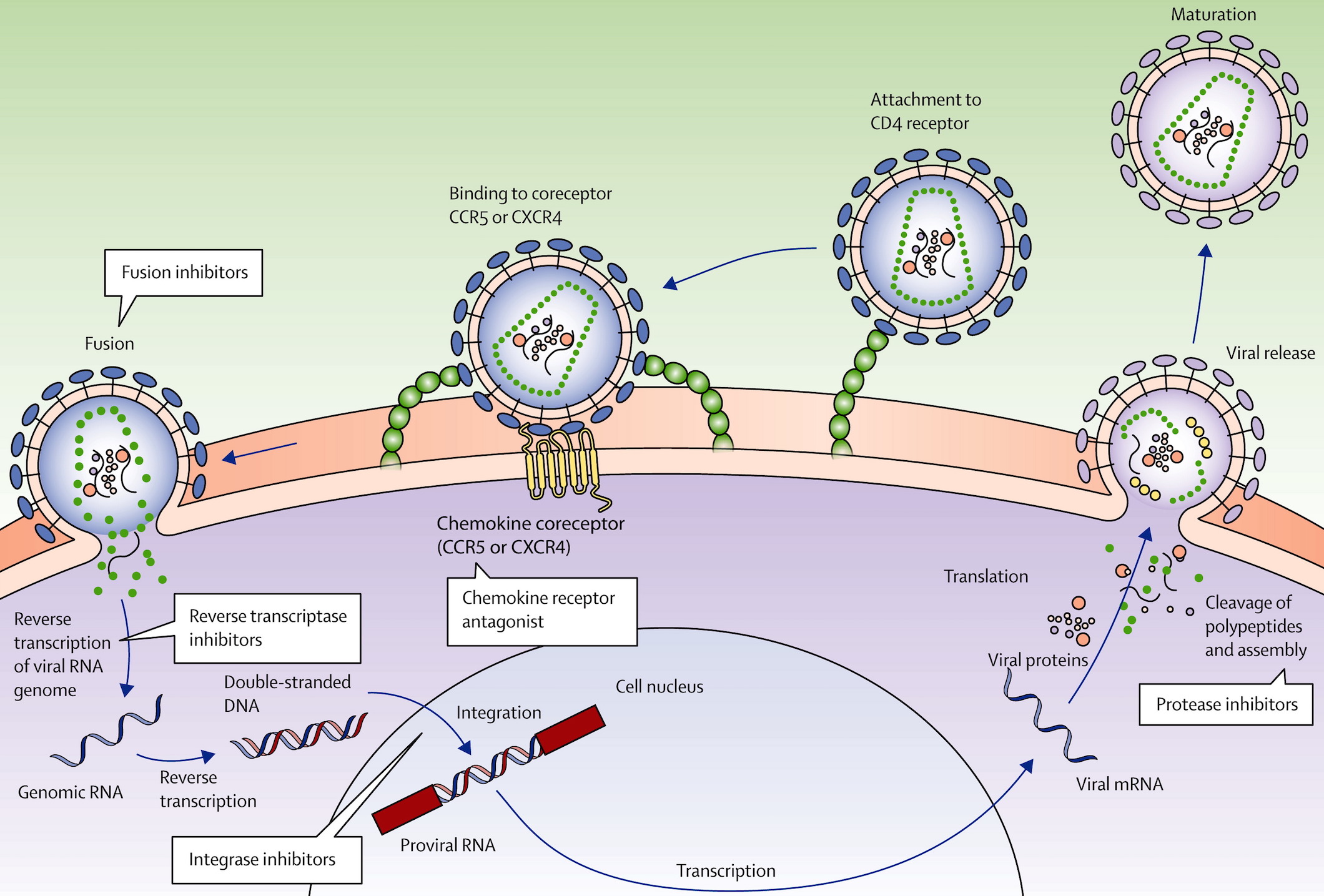
DNA virus genomes
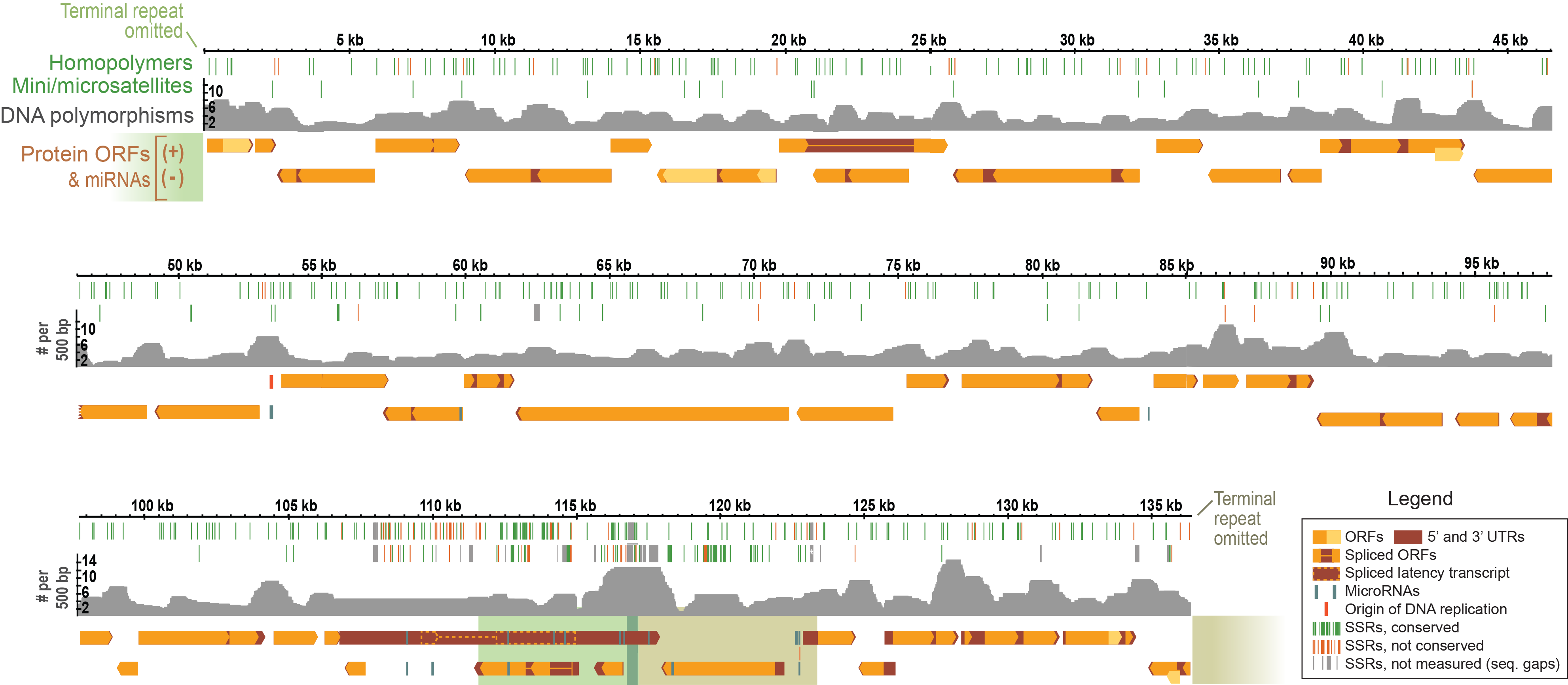
Bigger genome allows for more functions
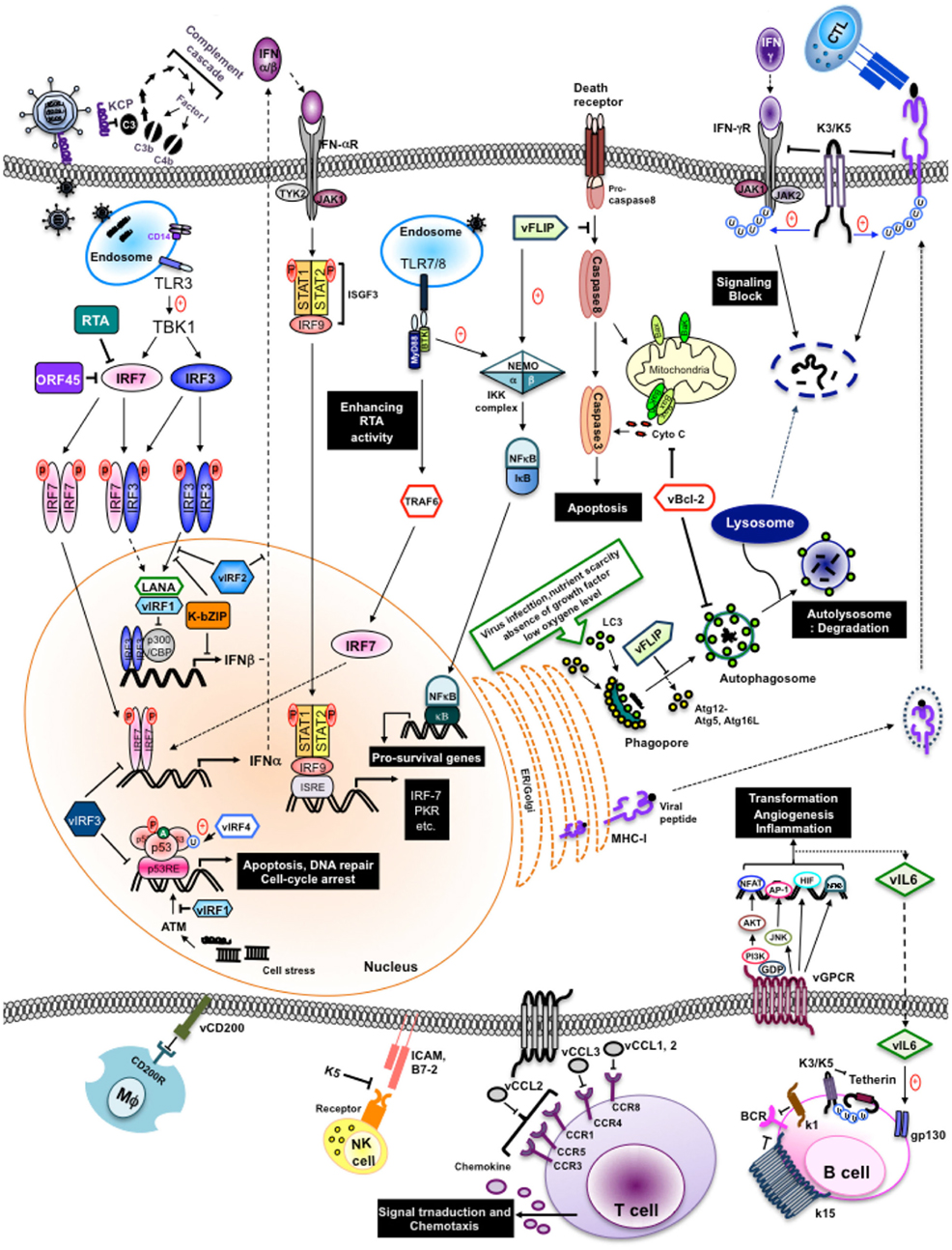
DNA viruses
- Herpesviruses: HSV, Epstein–Barr virus (EBV), Varicella, Cytomegalovirus (CMV), Kaposi's sarcoma-associated herpesvirus (KSHV)
- Papillomavirus (HPV)
- Smallpox, monkeypox
Bacterial cell
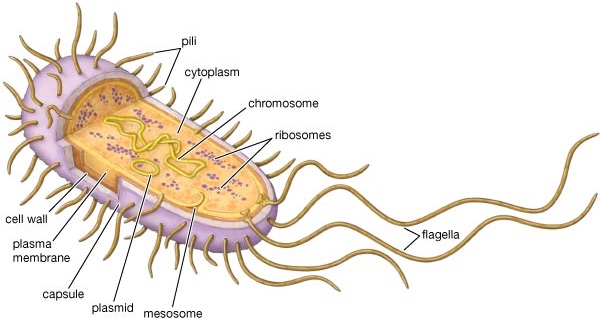
Bacterial diversity
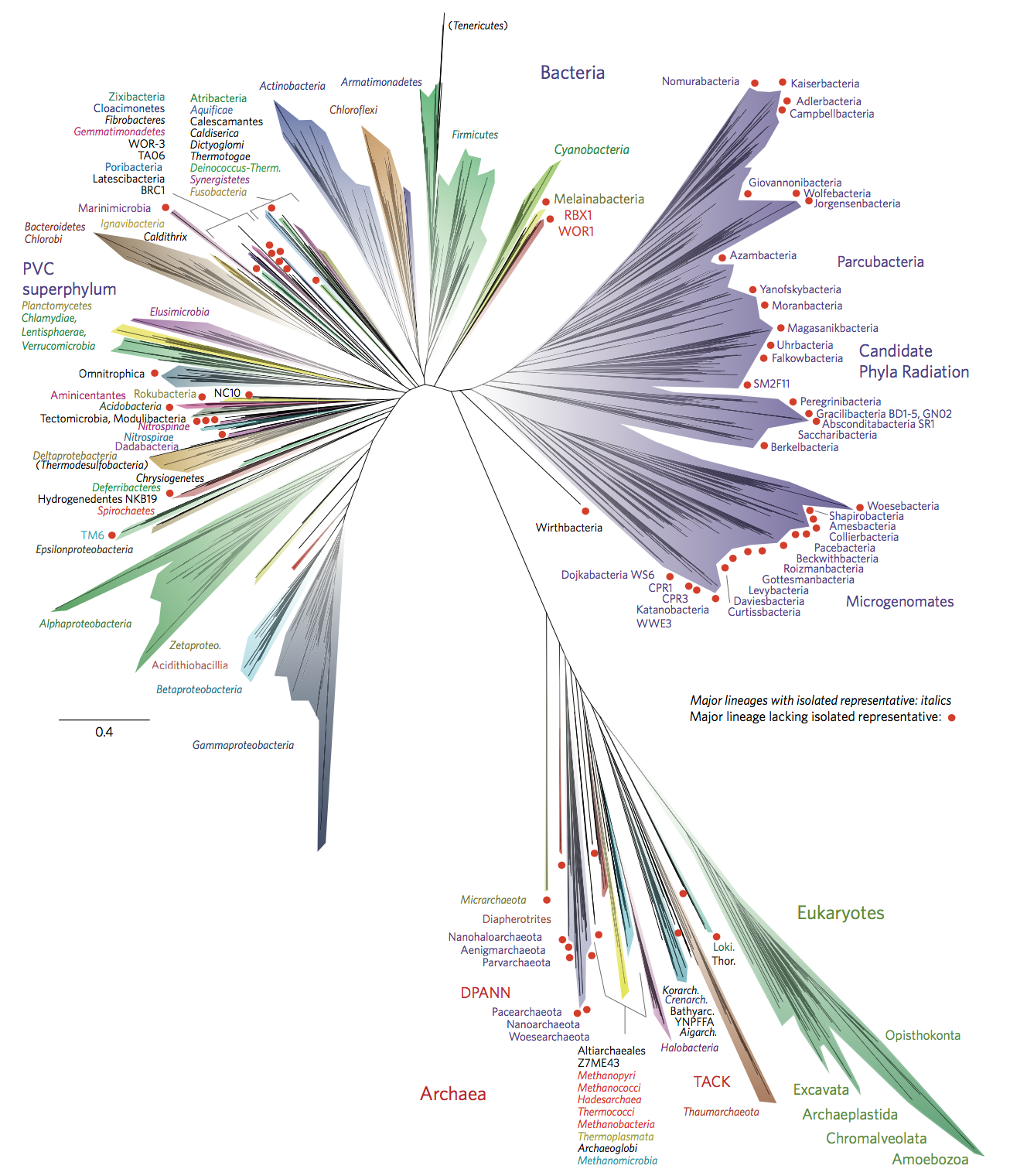
Core vs pangenome
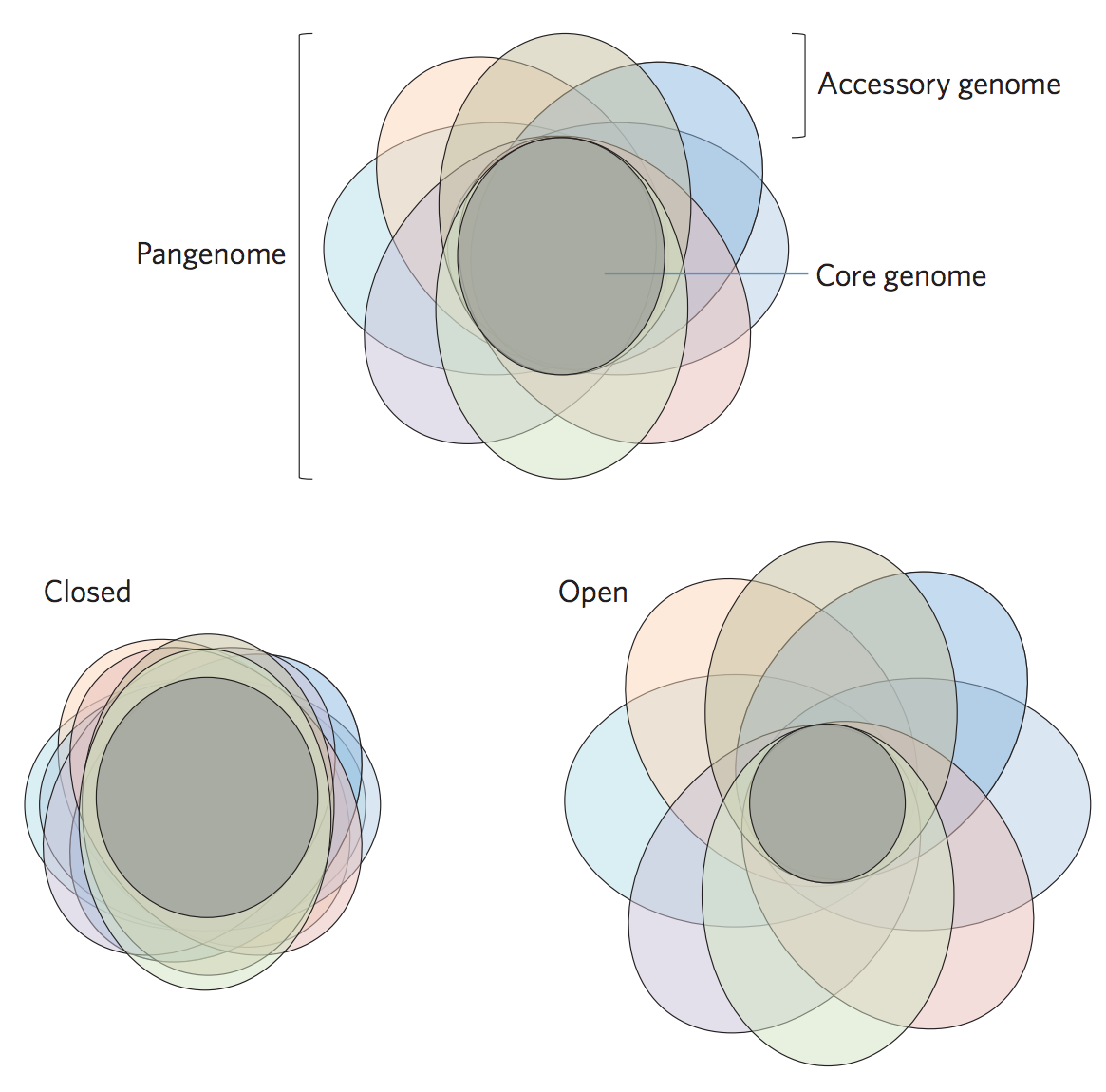
Divergent evolutionary histories between core chromosome and plasmids
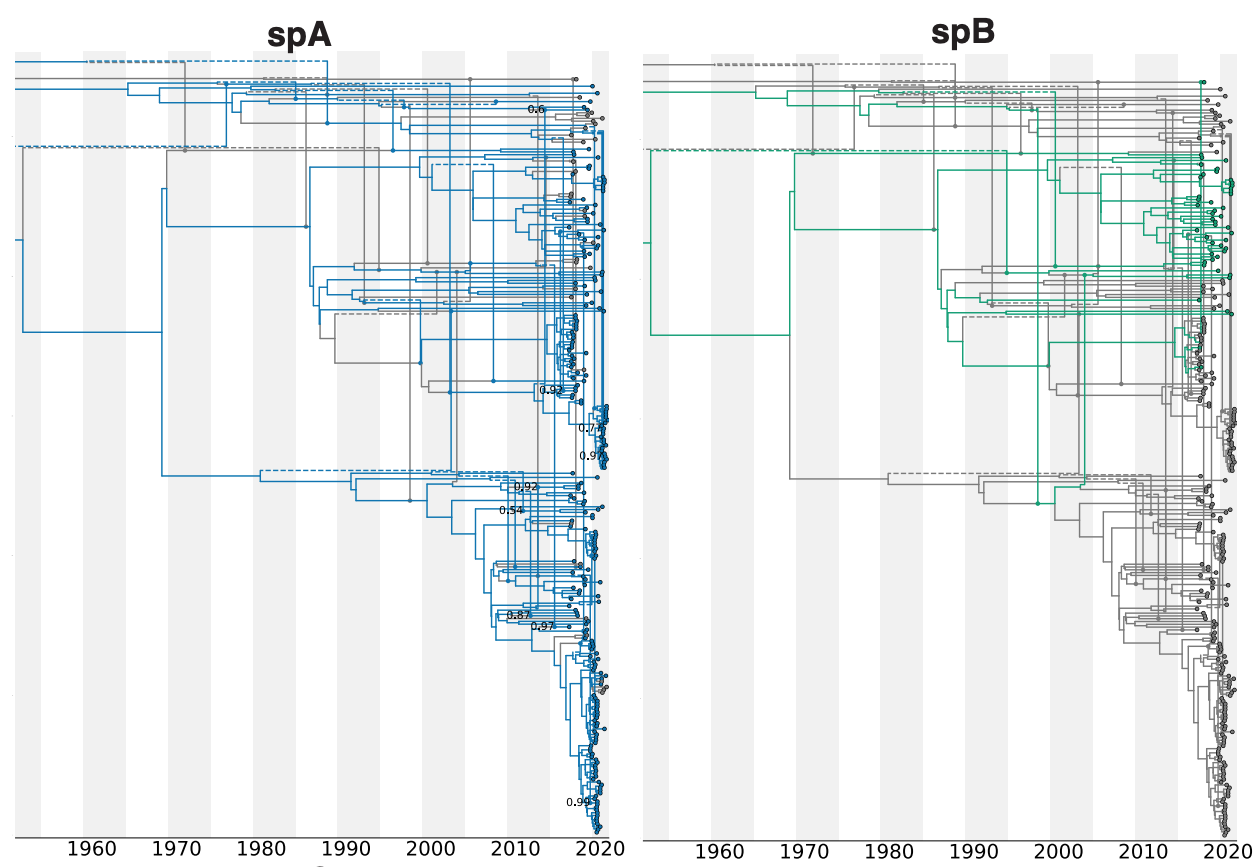
Recombination is often rampant
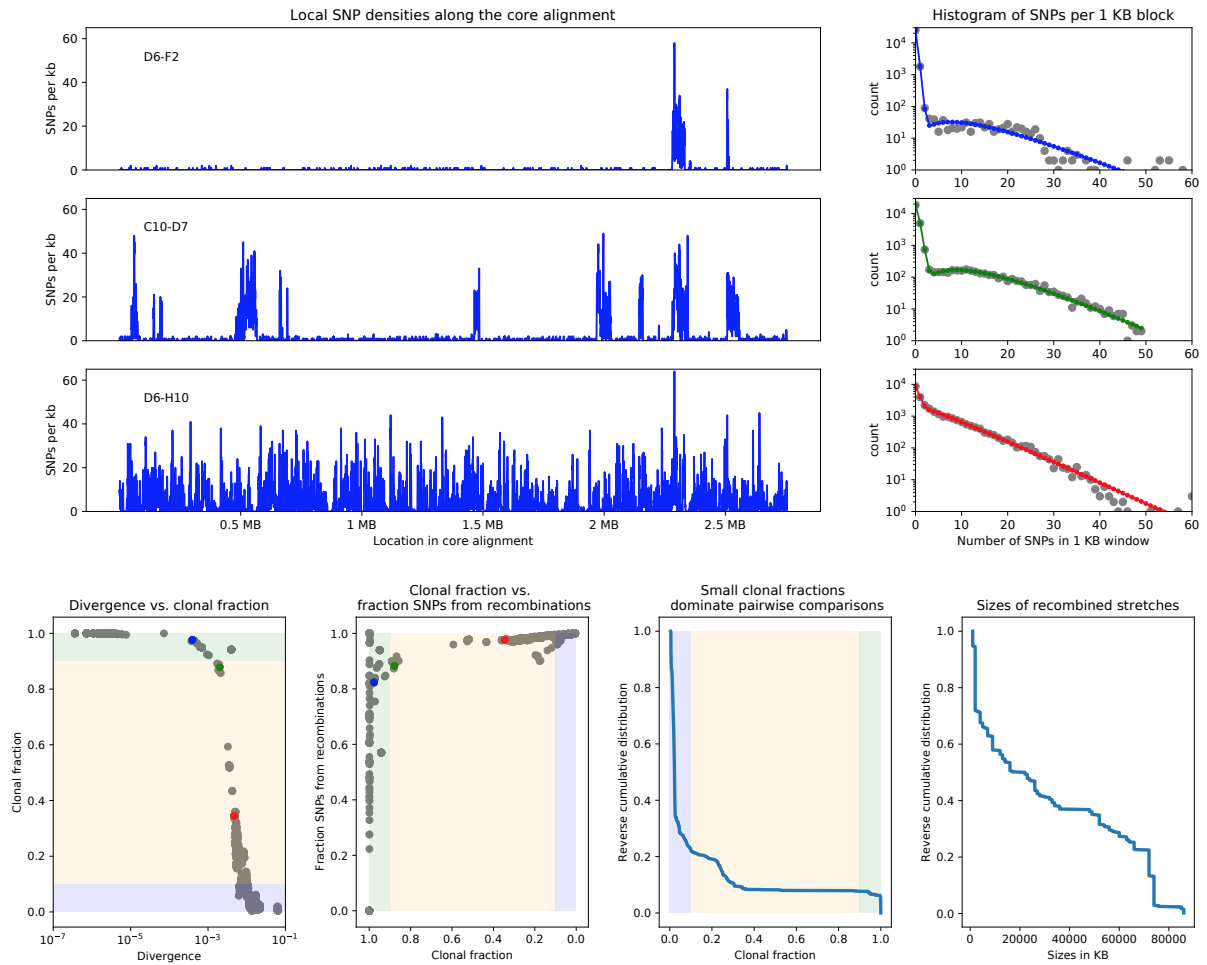
Bacterial pathogens
- C. difficile
- Cholera
- Klebsiella
- Neisseria gonorrhoeae
- S. aureus (MRSA)
- Shigella
- Streptococcus pneumoniae
- Tuberculosis
- Typhoid
- Y. pestis
Parasites
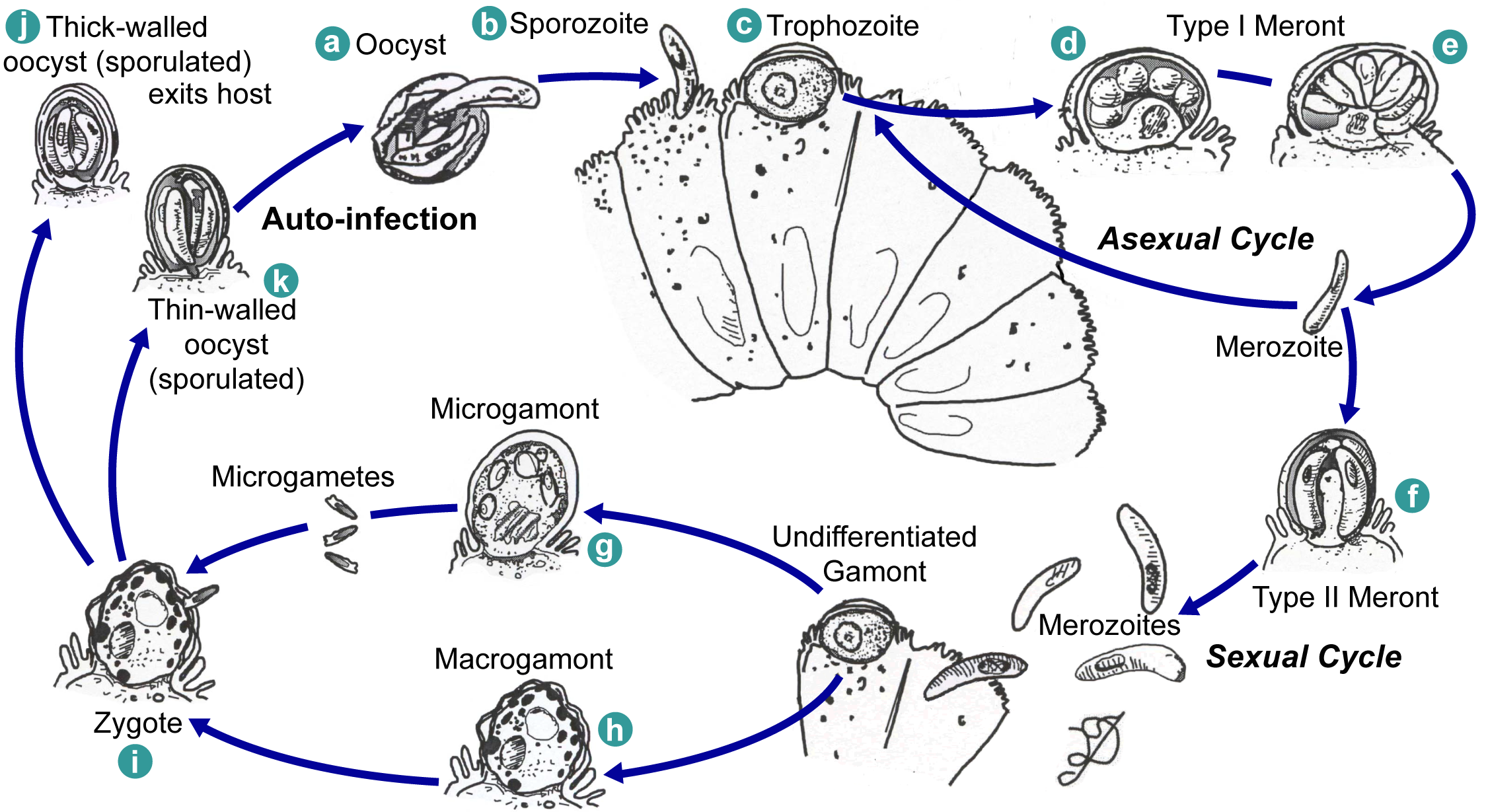
Parasite lifecycle
- Malaria
- Cryptosporidium
- Trypanosomes
- Giardia
- Leishmaniasis
Influenza
Prototypical antigenically evolving pathogen
Influenza virion
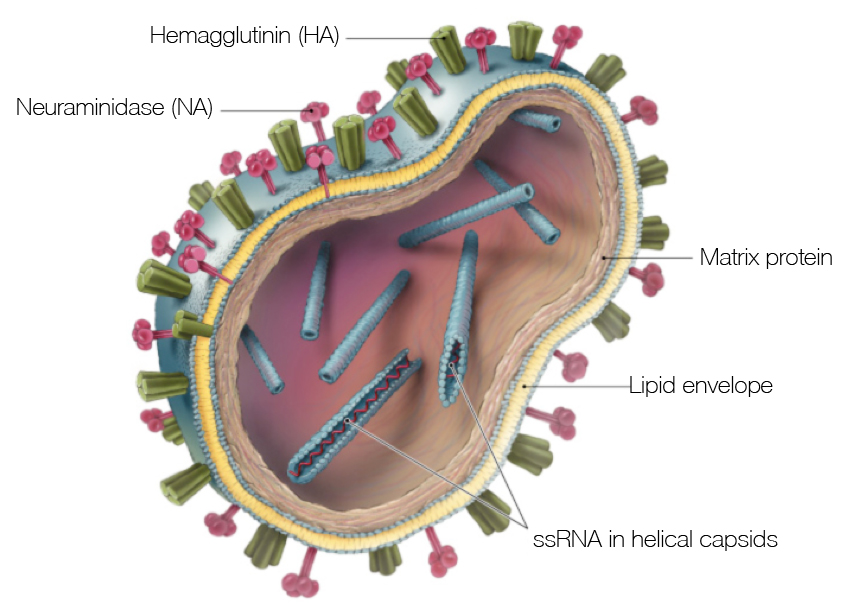
Influenza life cycle
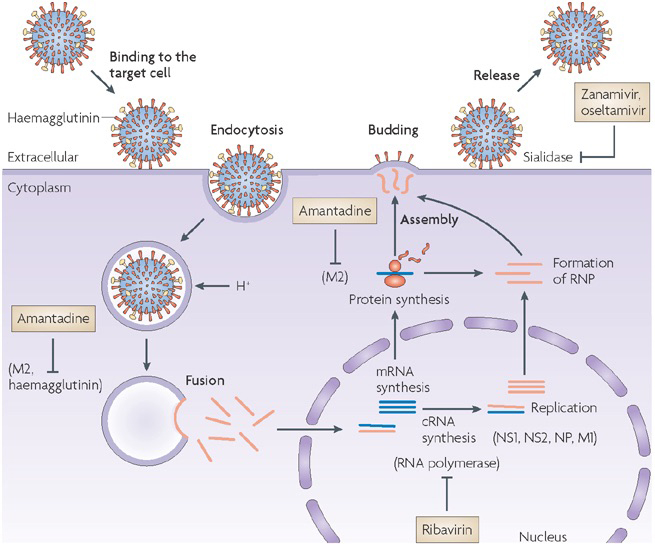
1918 "Spanish flu"
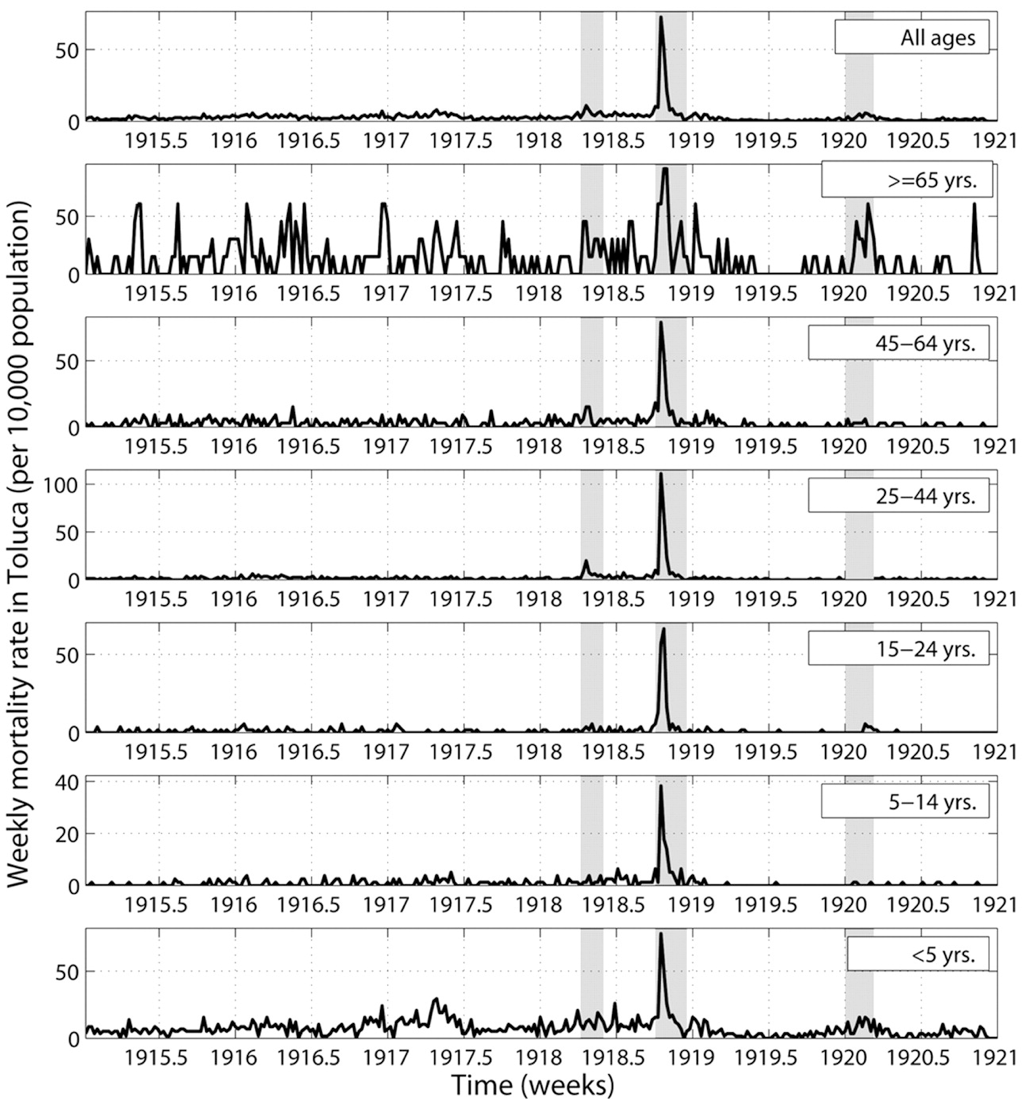
Flu pandemics caused by host switch events
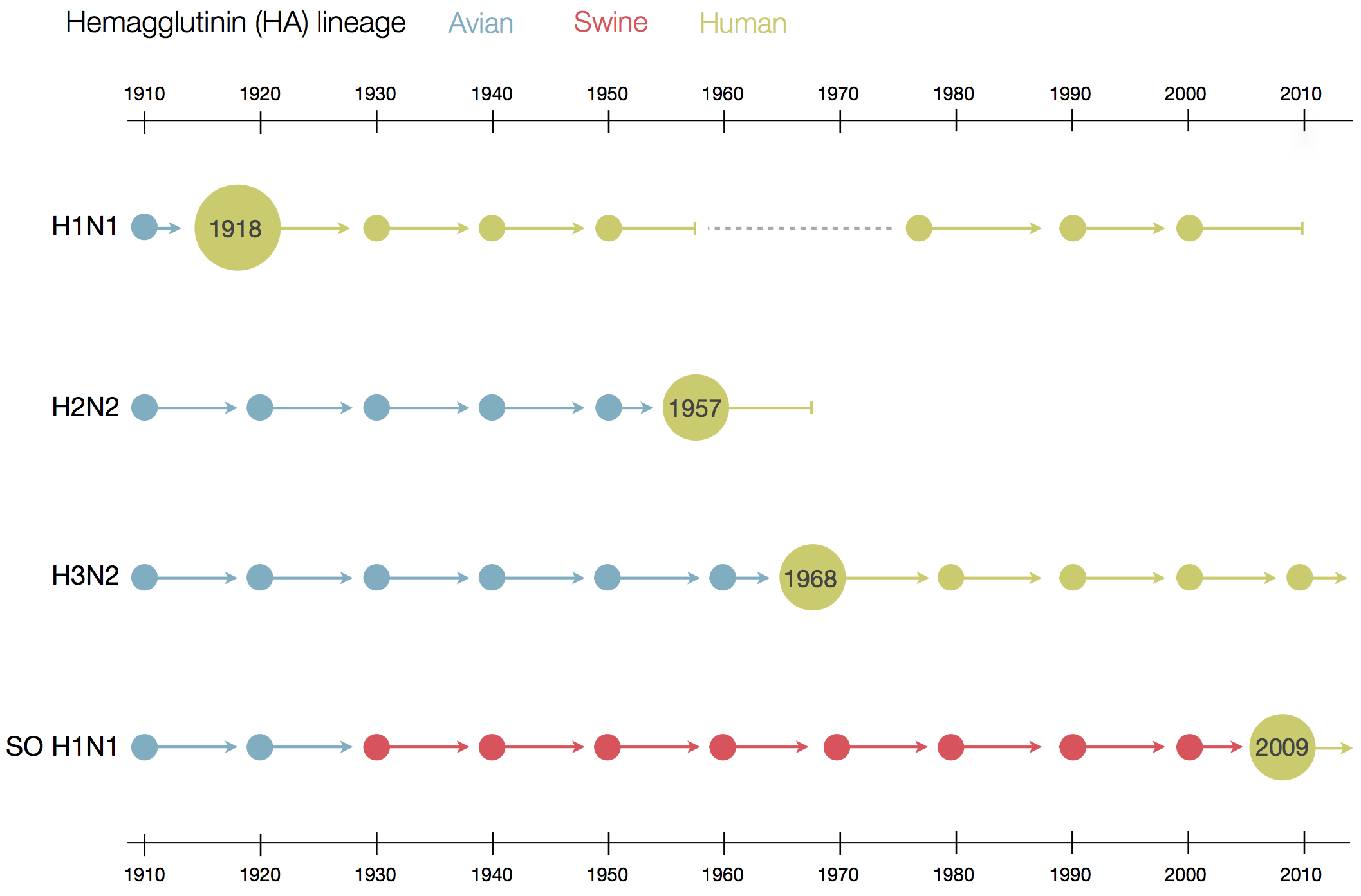
Host switch events often occur through reassortment
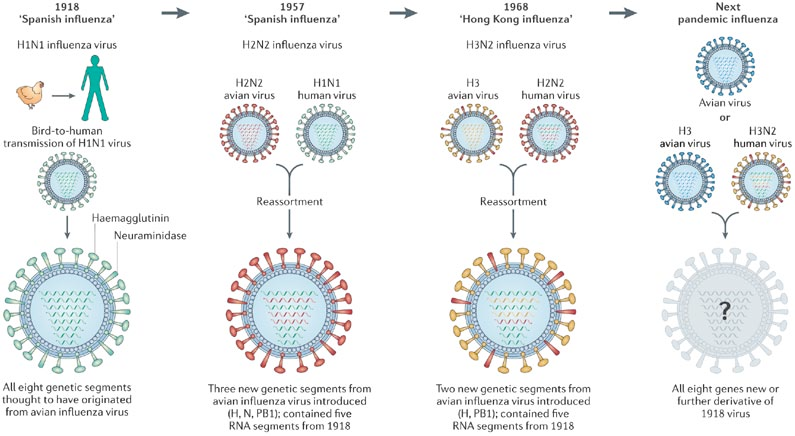
Host switch events often occur through reassortment
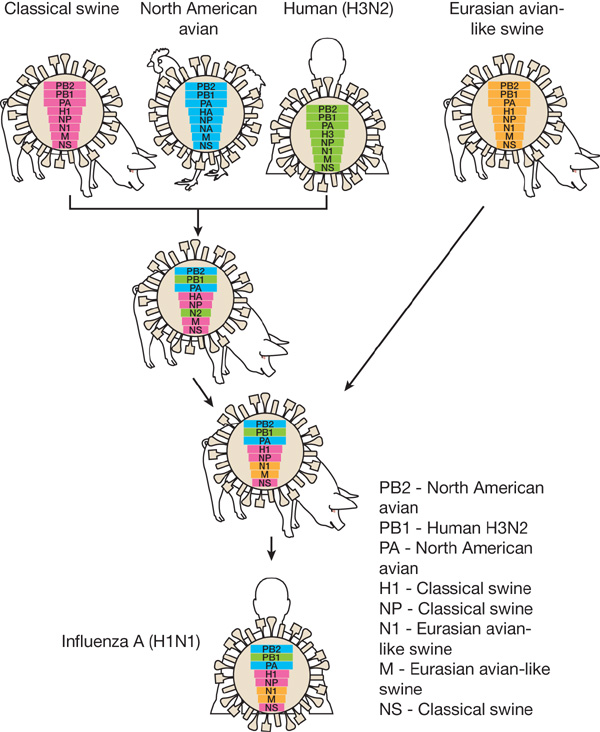
Reassortment creates different histories
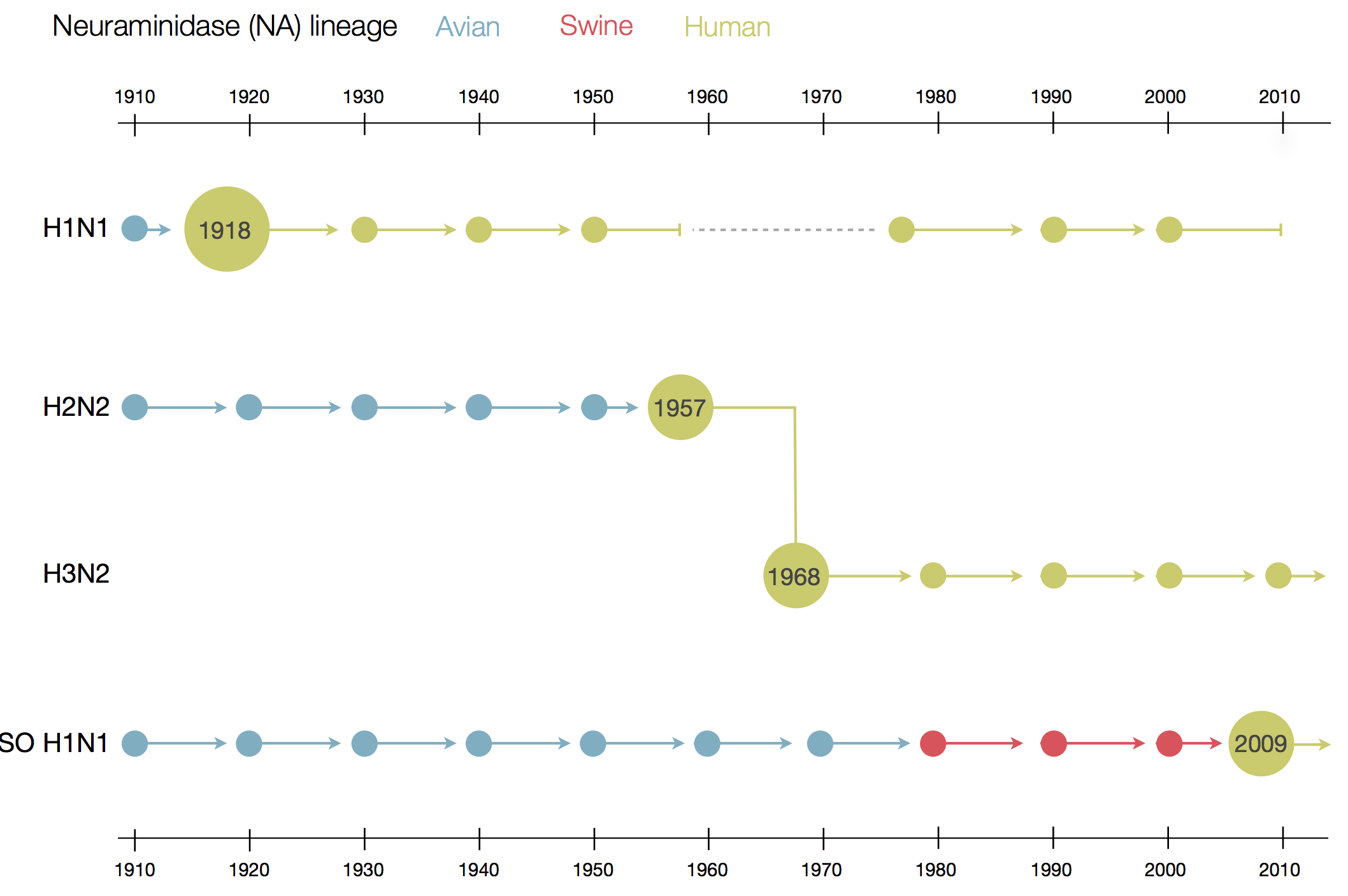
Influenza B does not have pandemic potential
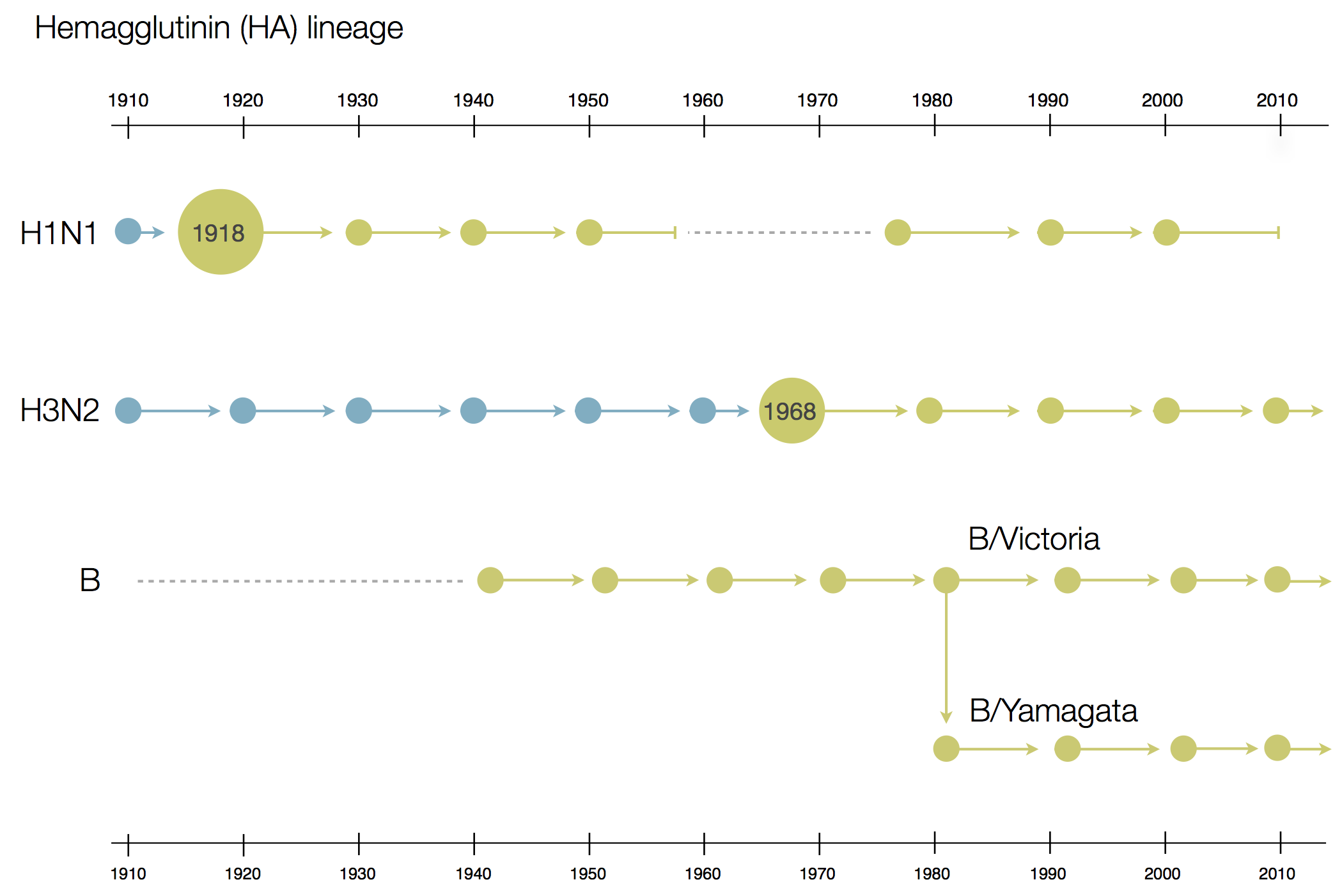
Phylogenetic trees of different influenza lineages
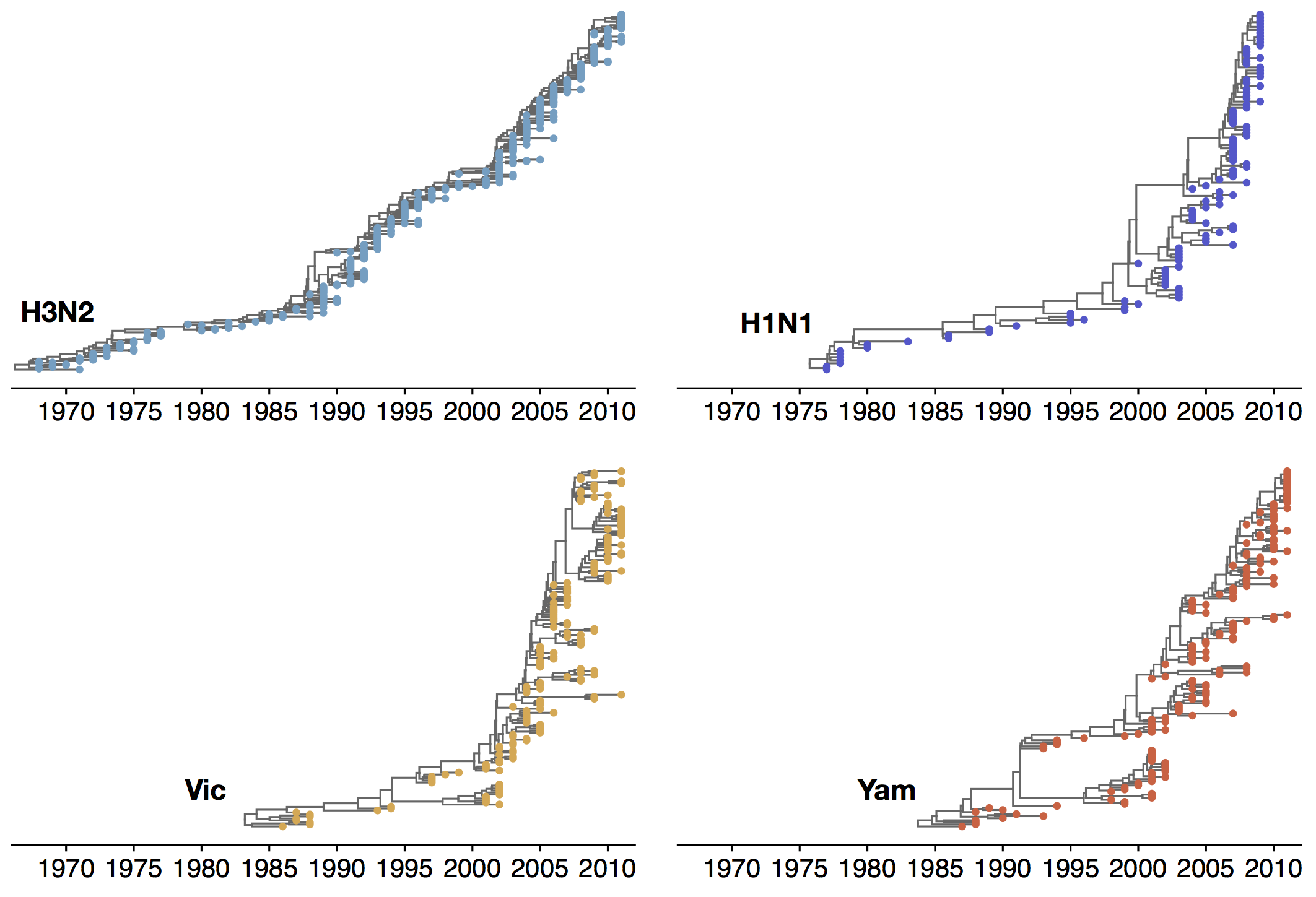
SARS-CoV-2
Genetic relationships of globally sampled SARS-CoV-2 to present
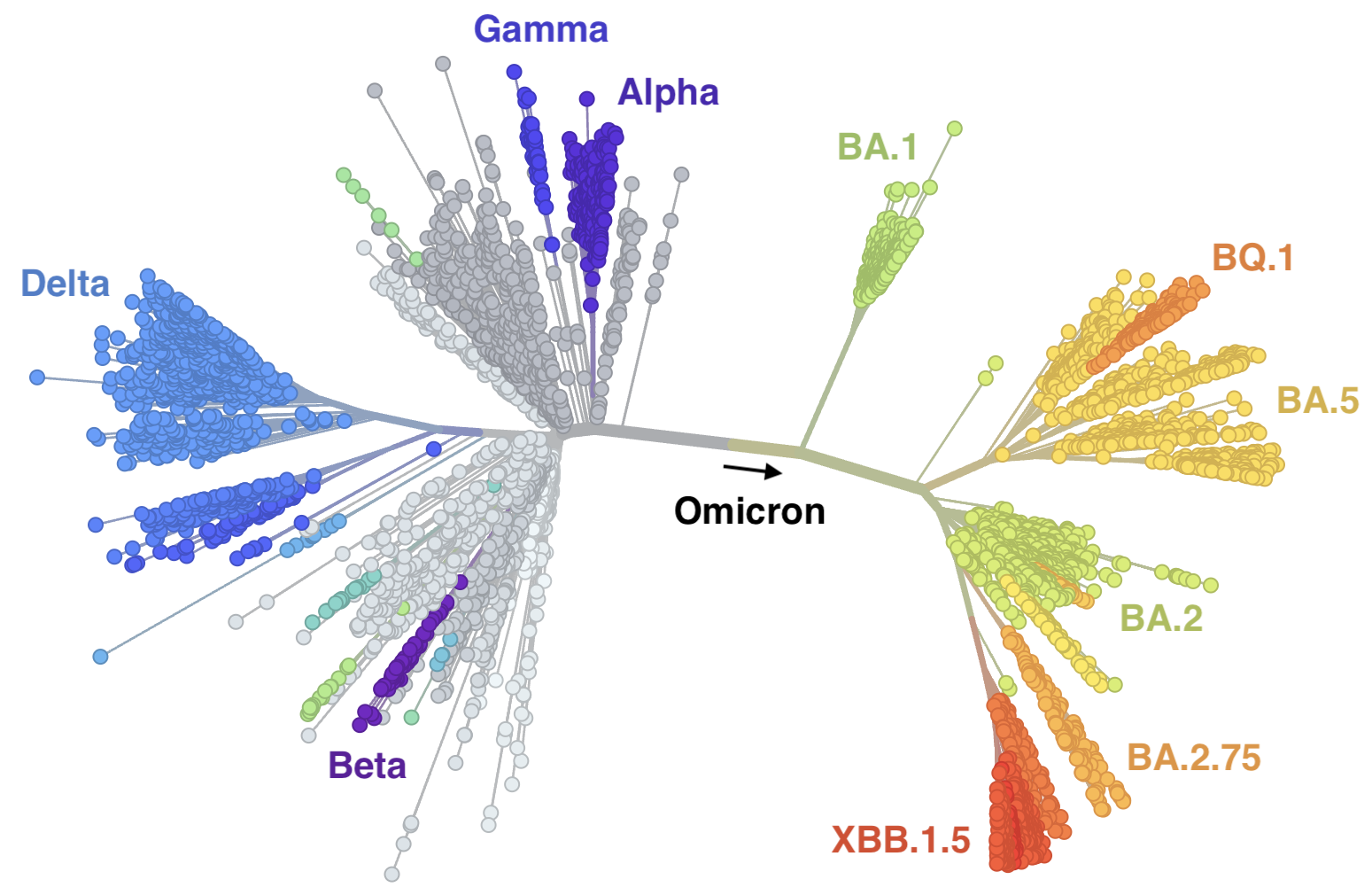
New variants rapidly replace existing diversity
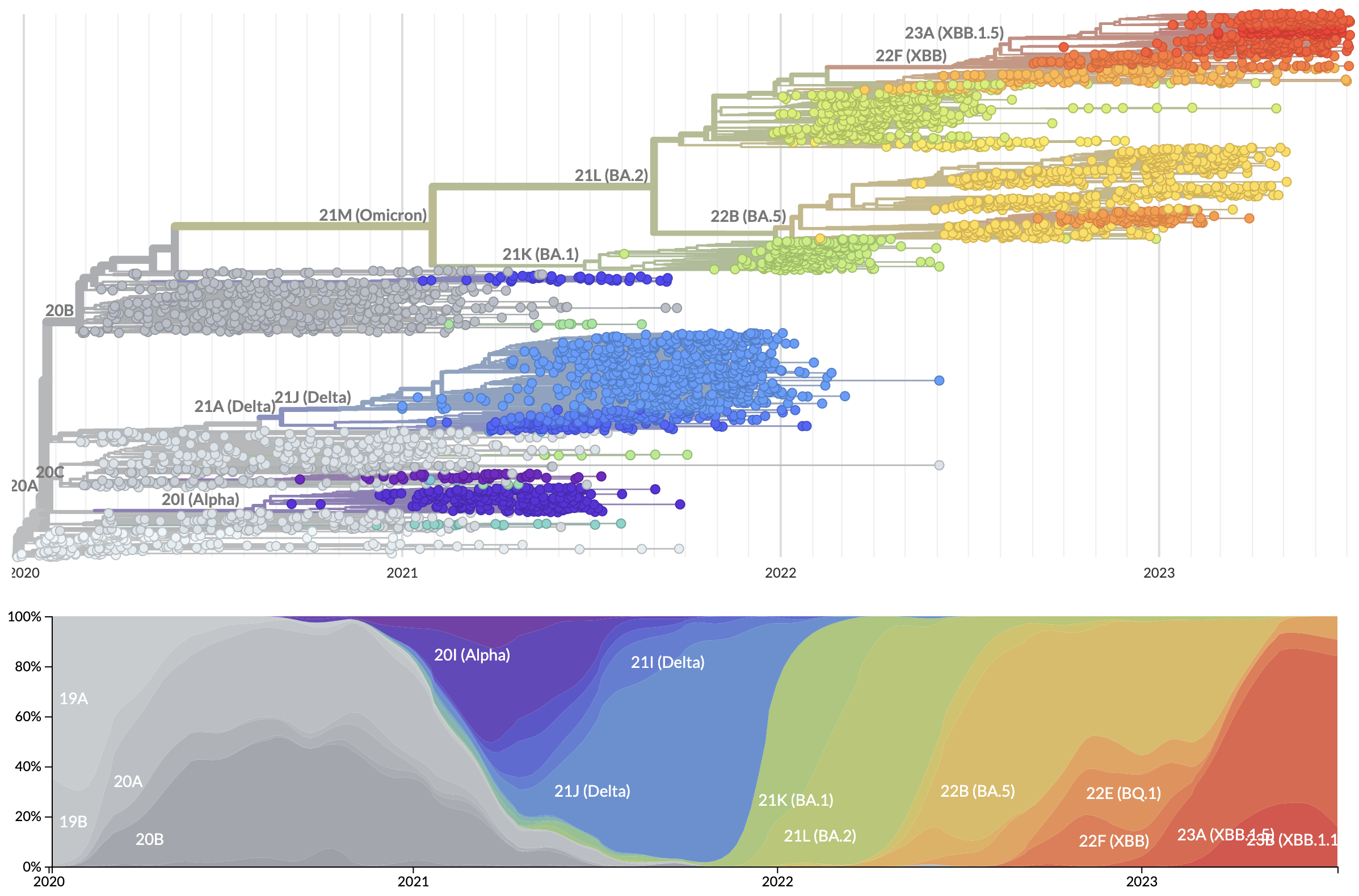
S1 evolution remarkably fast relative to seasonal influenza
